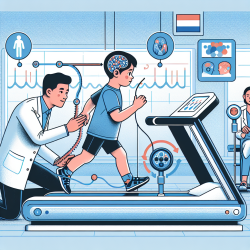Early hearing detection and intervention (EHDI) programs are crucial in identifying hearing loss in infants and young children. The success of these programs hinges on effective screening, accurate diagnosis, and timely intervention. Research, such as the study "Design and Evaluation Issues in Universal Newborn Hearing Screening Programs" by Hyde and Riko, provides valuable insights into optimizing EHDI programs. This article explores how practitioners can leverage findings from this research to enhance their skills and improve EHDI outcomes.
Understanding the Importance of Early Hearing Detection
Early detection of hearing loss is paramount in preventing delays in speech and language development. The endorsement of Universal Newborn Hearing Screening (UNHS) reflects a broad consensus on its necessity. However, as Hyde and Riko suggest, emphasizing the infant's ability to hear rather than solely focusing on speech and language development could strengthen the case for UNHS. By adopting a programmatic view that integrates screening with audiological assessment, diagnosis, intervention, and referral, professionals can ensure a comprehensive approach to early hearing detection.
Strategies for Effective Screening and Intervention
Implementing the outcomes of Hyde and Riko's research involves several key strategies:
- Shift of Emphasis: Focus on the broader benefits of hearing ability, beyond speech and language development, to advocate for UNHS.
- Integration of Services: Develop an integrated approach that encompasses all aspects of EHDI, from screening to intervention.
- Clear Objectives and Consensus: Establish clear objectives for EHDI programs and build a strong consensus among stakeholders on goals and practices.
- Information Systems: Utilize powerful information systems to track and manage data throughout the EHDI process, ensuring efficient follow-up and intervention.
- Family-Centered Care: Adopt a family-centered approach, recognizing the crucial role families play in the success of intervention strategies.
Encouraging Further Research and Development
While the direct evidence base for UNHS effectiveness may be modest, Hyde and Riko highlight the opportunity for professionals to enhance their knowledge and skills. Continued research and development in this field are essential for refining screening protocols, improving diagnostic accuracy, and developing effective intervention strategies. Interdisciplinary cooperation and the rationalization of practices will further strengthen EHDI programs.
Practitioners are encouraged to engage in ongoing education and research activities to stay abreast of advancements in EHDI. Networking with peers, participating in conferences, and contributing to professional discussions are valuable for sharing knowledge and experiences.
Conclusion
The research by Hyde and Riko underscores the complexity and significance of early hearing detection and intervention. By adopting a holistic view that prioritizes the infant's right to hear, practitioners can enhance the effectiveness of EHDI programs. Embracing a family-centered approach, integrating services, and fostering interdisciplinary collaboration are key to achieving this goal. Further research and active participation in the professional community will continue to drive improvements in early hearing detection and intervention practices.
To read the original research paper, please follow this link: Design and Evaluation Issues in Universal Newborn Hearing Screening Programs.










